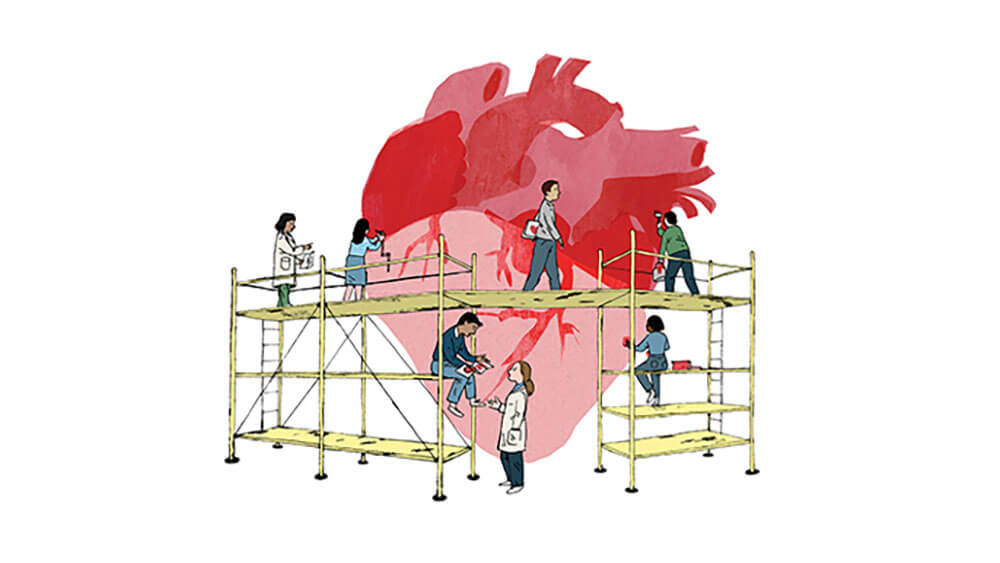
The daylong Biofabricate 2016 brought together professionals in the fields of design, technology, and biology. (Illustration/Carmen Segovia)
Biofabricate 2016, Nov. 17, 2016; Parsons School of Design New York City
Some people live and breathe design, but none more literally than students and practitioners of biofabrication, which uses biological organisms to make clothing, utensils, electronic equipment, and other consumer products. How? “Organisms such as yeast, bacteria, fungi, algae, and mammalian cells are fermented, cultured, and engineered to synthesize nature’s materials,” according to the website for the Biofabricate 2016 conference, “but with new functional and aesthetic properties.”
Biofabricate was founded in 2014 by fashion designer Suzanne Lee, chief creative officer of Modern Meadow, which works to culture leather materials. “What excites me about using microbes is their efficiency,” Lee said during a presentation at TED 2011. “So we only grow what we need. There’s no waste.”
Splice Together
The daylong Biofabricate 2016 brought together professionals in the fields of design, technology, and biology. Adidas was the gold sponsor, and speakers included James Carnes, the athletic-wear company’s vice president of strategy creation; Burak Cakmak, dean of host venue Parsons School of Design’s School of Fashion; Phil Ross, chief technology officer of MycoWorks, which develops products using mycelium, the vegetative structure of fungi; and Laia Mogas-Soldevila, a Ph.D. student working in “biomaterial functional architectures” at Tufts University’s Omenetto Lab.
Material Learning
Half-hour breaks were scheduled throughout the day, and took place in Biofabricate’s Design Lab, which the conference program described as an “exhibit [that] showcases the future before it arrives.” Nearly 20 companies participated, from Biorealize, whose Microbial Design Studio designs, cultures, and tests genetically modified organisms, to Maurizio Montalti, who creates textiles, bowls, and other works from biomaterials.
Show In
During his keynote presentation, Carnes unveiled Adidas’ Futurecraft Biofabric, the first “performance shoe” made using Biosteel, a spider-silk fiber technology. “This is a pioneering stride forward,” Carnes said in a statement, “beyond sustainability into a new territory of bionic innovation.”
